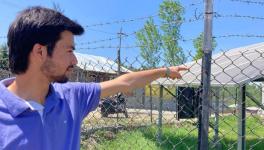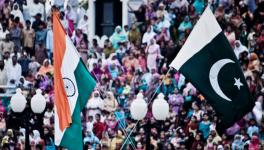J&K: Internet Normalcy Returns After 1.5 Years, 4G Services Active
Srinagar: Authorities in the Union Territory of Jammu and Kashmir have finally restored high-speed internet services in the region more than a year and a half after it was snapped as part of restrictions imposed in the wake of the abrogation of Article 370 on August 5, 2019.
“4G mobile internet services being restored in entire J&K @diprjk (sic),” Rohit Kansal, the official spokesperson for the UT, tweeted late on Friday.
Internet services were blocked across the erstwhile state of Jammu and Kashmir after the government revoked the ‘special status’ of the region in what was referred to as the world’s most severe communication clampdown in a democracy. Even as services – including fixed line connections and limited internet – were restored in a phased manner, 4G services remained off-limits for nearly 18 months before its restoration on Friday.
After the initial communication blockade, limited internet services were restored in the region for the first time after nearly five months in January 2020 in two districts in north Kashmir – Bandipora and Kupwara.
High-speed internet was later made accessible to only two districts in north Kashmir – Kupwara and Ganderbal – in September last year while the majority of the union territory was to use services on a limited 2G speed.
“4G Mubarak! For the first time since Aug 2019 all of J&K will have 4G mobile data. Better late than never,” former J&K Chief Minister Omar Abdullah wrote on Twitter.
Even as many expressed gratitude for the revocation of the 4G ban many showed little excitement, saying the long-term lack of internet services have had its impact which, they say, cannot be undone in just a day.
Arif Bashir, a resident of Srinagar, told NewsClick that there was no reason to celebrate. “I have been paying for a 4G connection for 551 days while this ban was in place. It is no favour by the government,” he said.
The ban had been extended after every three weeks by the home department as a measure taken by the authorities to ‘thwart separatism and militancy’ in the region. Critics, however, said that the access to internet and higher speeds had no role to play in the increase or change in the violence in Kashmir.
The internet blockade in the region was considered one of the worst clampdown on communication services. It affected people’s lives, healthcare and children’s education in Kashmir. Many online businesses were shut in the aftermath of the shutdown triggering an economic crisis.
Several rights bodies stated that the restrictions on internet connectivity caused widespread damage to education and industry in Kashmir. The restrictions, they added, have also impeded public health, and caused trauma and stress to people from the region.
The restoration of high-speed internet was also widely debated on social media platforms with many netizens calling the news “heartening” while many others took a dig at the government for taking so long to restore internet normalcy.
“4G internet being restored after 550 days of illegal shutdown in #Kashmir, making India the internet shutdown capital of the whole world! Access to internet is a basic right, not even asked for in the world beyond #Kashmir. Also, no, normalcy has not returned! (sic),” Majid Maqbool, a resident of Srinagar, tweeted.
The restriction on high-speed internet continued amid the global breakout of the COVID-19 pandemic, something that the rights bodies said compounded the challenges in dealing with the novel coronavirus
Critics also said that limited internet connectivity in the region only added to the panic, fear and anxiety caused by COVID-19 while they called for the restoration of full access to internet services.
Get the latest reports & analysis with people's perspective on Protests, movements & deep analytical videos, discussions of the current affairs in your Telegram app. Subscribe to NewsClick's Telegram channel & get Real-Time updates on stories, as they get published on our website.
























